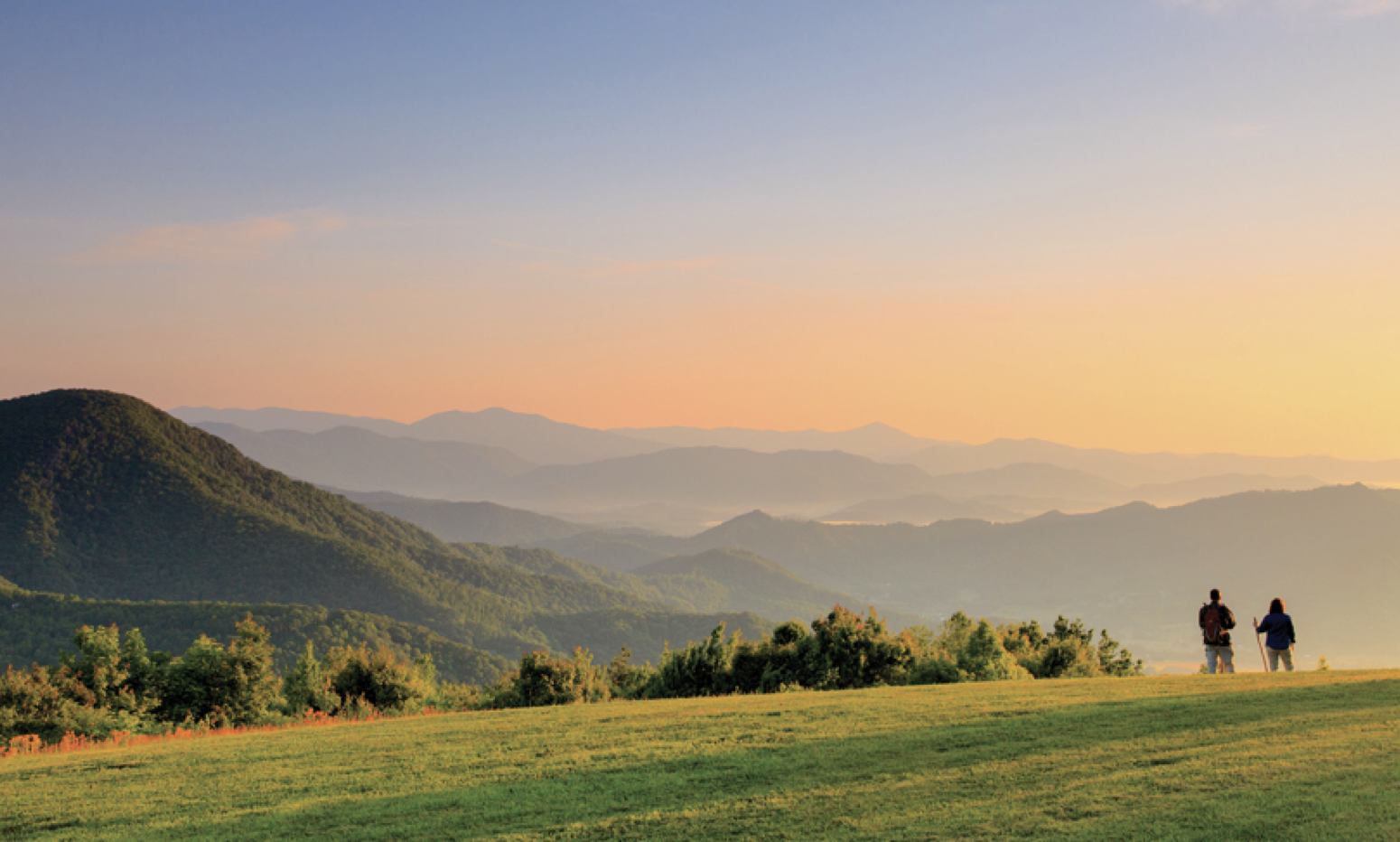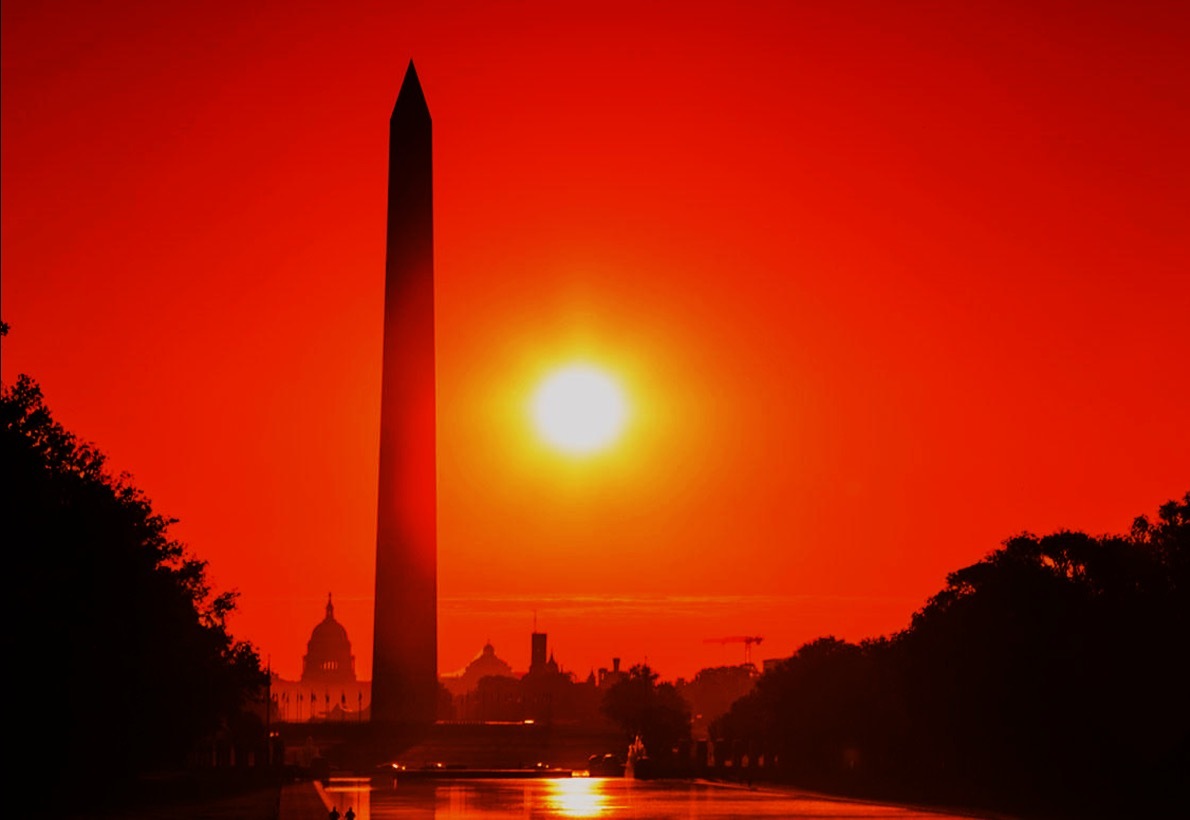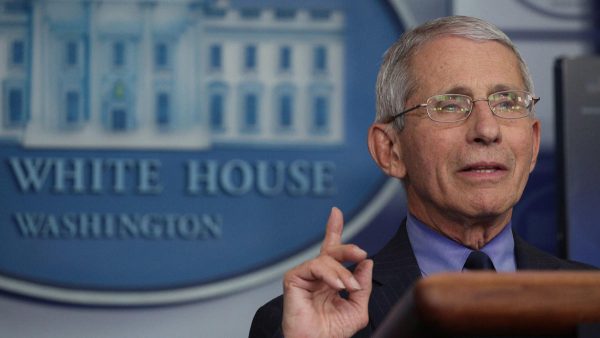Don’t let the commies win.
The Green Zone Plan

To beat coronavirus, get Americans back to living natural lives.
Already in our digital age, before the time of coronavirus, the mystique of the “hot take” was diminished. Coronatakes abound, many good, but all shadowed by the growing sense that if you’re arguing or explaining you’ve already lost—lost time, lost attention, lost the chance to win or simply to act.
Still, staying in communication remains important to our welfare and central to our humanity. Based on conversations with leading technologists and policymakers, this is my sense of where and how theory meets practice in the politics of the coronavirus.
The First-Order Dilemma
America cannot go on total extended lockdown without ceasing to be America. This is the fundamental problem. It is true in two distinct but deeply connected ways.
The first concerns our principles.
Principles these days have a worsening reputation. Too often, they’re invoked abstractly to evade uncomfortable realizations or to cut pressing conversations short. It is all too easy to imagine that anything you think up can be worthy of the honor of treating it as a principle.
Well understood, however, principles arise reasonably from perceptions.
America is the New World. We have no collective or inherited experience of the most binding forms and modes of order that so long dominated the Old—absolutism, feudalism, imperium, etc. Total and extended lockdown has the experiential effect of imposing Old-World political structures onto an American mindset that cannot support them.
This mindset is sometimes discussed in terms of natural right. Our New World perception of nature gave experiential impetus to our expression of natural rights. Jefferson explained that the Declaration was meant to capture this intuition of the American mind. Even Americans inclined to deny natural rights are real fall back on language and ideas that echo and mirror the principles of natural right articulated in the Declaration.
Lockdown World goes too far toward destroying the relationship with the natural world that prepared the way for our foundational insights into human nature. In America, Lockdown World is incompatible with the New World.
The second way in which total, extended lockdown is untenable in America has to do with our people.
The wellsprings of American life that Tocqueville examined are fatally sapped in Lockdown World—and the predicaments of American life that he warned us against are exaggerated. Our national and public character is inextricably commercial. We are a nation of busybodies.
While there is no doubt that, in recent decades, economic growth was achieved by effectively selling off the American family for parts, the American people will cease to exist as we know ourselves if we are forced into Lockdown World. This is so even if that means lockdowns strengthen family ties. Never forget that Tocqueville feared the equality of conditions, given its emotional logic, would first reduce our circles to our family and close friends and then continue shrinking them down to the ambit of our own brooding souls.
Modern political theorists have been concerned with the motion of bodies in space since (at least) Montesquieu. Set aside modernist accounts of political science that treat us as particles analogous to material ones. Humans are animated beings: creatures filled with anima, breath, soul. For humans, “suspended animation” is untenably oxymoronic. As an American people, the commercial and mutually entangled ways we move and circulate produce a force too powerful to submit to Lockdown World without a fight.
But many Americans are already sunk so deep into Tocqueville’s democratic dystopia of the spirit that their souls had surrendered to Lockdown World before it began.
It is unwise to generalize too much as to where those who would fight and those who have surrendered are geographically concentrated. But it is easy to see how those living in our biggest, most concentrated cities can be best pressed to surrender, even if many of them may have once left the interior out of frustration or disgust with the spirit of immobility and disconnection that can now often be found there.
We are likely compelled to face up to both urban and rural strains of acceptance or even longing for the paralysis of “suspended animation” that Lockdown World would bring.
The Second-Order Dilemma
The good news is, given these bedrock realities, nobody in charge is actually pushing for Lockdown World. Even New York Governor Andrew Cuomo, who has in some ways and for some of the best reasons come closest to imposing Lockdown World, has signaled that he well understands his approach grows more untenable as time goes on.
Nevertheless, getting past the first-order dilemma of the untenability of Lockdown World delivers us at the feet of a second-order dilemma, because a blanket policy of Open for Business is also unwise and unworkable. The second-order dilemma is not that we’re stuck choosing between two non-options. Prudence and leadership is hard, but it requires that we clarify for ourselves what middle path we must forge, and why.
To forge a path forward tailored to our strengths and ameliorative of our weaknesses, it helps to understand the stakes for the American people as we are, not as we imagine ourselves to be. This is important because the stakes go far beyond ideology. Underlying the tension between tacking toward Lockdown World and tacking toward Open for Business is a fundamental conflict over our human relationship with nature.
While this may seem lofty and detached from the practical action we need to win, the reality is that siding with nature, not against it, is the key that unlocks a winning plan—a Green Zone Plan focused on clearing, holding, and expanding the territory where Americans can live their natural lives.
The Mask Slips
Even on a straight line, events are outpacing analysis—and in times like these, straight lines are unlikely. Many reversals of fortune likely await.
This is not simply a turbulent time for the major contending ideologies. Ideology itself is facing a massive reversal of fortune. In the current crisis it is not as good a proxy for behavior as it once was.
Though there are still fairly significant correlations in some regards, being a Democrat versus a Republican, or a conservative versus a liberal, is decreasingly predictive of one’s arguments and actions in response to coronavirus. Even identifying as a conservative is not a clear signal as to one’s positions and behaviors.
More people, “ideologues” included, are recognizing that perfecting their dreams in speech is not particularly helpful to addressing the problem, namely, how to save themselves, those they love, and their countrymen and country.
But some people are growing more convinced that we will only be saved by re-establishing the mastery of communicable dreams over the brute realities imposed by the viruses, nature’s killer robots. This raises the stakes in what at first appeared to be a merely ideological conflict. The stakes are raised because the mask is slipping: the conflict is more fundamental than ideology. It reaches down to the roots, to a conflict about nature.
Podlife
Consider the following example. Before coronavirus, the programming to “live in the pod, eat the bugs,” order the weed, binge the porn, etc. was interpreted ideologically, as the upshot of a system of ideals toward which people were being pushed through various forms of power to conform. This system basically boiled down to the premise that podlife was the terminus of natural human life lived according to the correct ethical regime. It was how we harmonized autonomy and equality—a political response to the predicaments of our given condition.
After coronavirus, the podlife programming is more clearly driven by a more than ideological force. Rather than a politics meant to manage our nature in accordance with our ideals, podlife is taking shape as a technology meant to secure our life by severing it from nature. The virus provides overwhelming evidence that nature is not our home.
Radical environmentalists have long warned that humans are not fit for the preservation of nature. The ascendant idea is that nature is not fit for the preservation of human life. Even if we manage to beat the virus, the argument goes, our destiny demands that we beat nature, breaking loose from its constraints. To truly live, we must live “off-world,” not in nature but in “space”—outer space or cyberspace, and preferably both.
This is not an ideological claim about how persons and peoples should live, but rather a claim concerning ostensible knowledge about how we must live, in order to live. In this capacity, podlife in the coronavirus era retrieves an ancient concept of knowledge: gnosticism.
The Gnostic Ultimatum
Gnosticism concludes that that the fundamental thing to know is that nature is humanity’s enemy. We are super-natural beings imprisoned in a natural environment ultimately bent on our destruction. Our bodies die. Our biology makes us oppressed and unequal. Our planet confines, constrains, and punishes us. An asteroid will eventually hit. Our sun will eventually explode. The heat death of the universe awaits.
The gnostic goal is to escape the death row of nature by building tools that allow us to become our dreams—not in the ideological sense of forcing our abstract ideals to come down to earth and “become flesh,” but in the opposite sense, of liberating ourselves into a super-natural state of existence and consciousness.
It is obvious how some technologists might (or do) see themselves as the prophets and forerunners of that kind of radical liberation from nature. It is less obvious, though perhaps increasingly becoming so, that podlife in the age of coronavirus is a kludge for moving us toward the same intended ends.
After all, enough of us have now enjoyed the illusion of being free from the burdens of reality by watching the flickering images of Black Mirror episodes where people enjoy the illusion of freedom from a hostile world by watching flickering images on screens.
Podlife today means fully internalizing the mindset that our best life is an illusory one, and the height of ethics is becoming masters of the technology of illusion. With adequate work and time, we can enter fully into the illusions we create, escaping nature’s death row into a world, as Willy Wonka sings, of pure imagination. Wonka’s words in that song were supplied by the same songwriting team behind the stage and screen hit Stop the World—I Want to Get Off.
The deepest conflict in the viral age is over the relationship between Man and Nature. We won’t defeat nature’s bots unless we conscript our own bots—our digital machines—to fight fully on our side. But to win, we must understand that our side is the side of our natural humanity. It is only within nature that the idea of natural rights of any kind can emerge. Only in nature can we understand who we are. And only in nature can we understand that nature is not a prison or a death sentence but a precious gift, without which we are nothing.
Green Age Mindset
This insight reveals a practical path between Lockdown World and Open for Business—one that will preserve and conform to America and Americans. It reveals a path that jettisons harmful habits and ideas and conserves and promotes our way of life at its best, all in manner suited to the reality and the future of this century.
In some quarters, analysts are arguing forcefully for the virtualization of as much of the economy as possible. To a degree this is understandable as an emergency sort of measure, or even as a measure that would increase our safety and resilience for whenever the next pandemic—or the next coronavirus wave—arrives.
Critics of this approach rightly object that millions upon millions of Americans can’t virtualize their jobs in this way: they are, so to speak, “stuck with nature,” and can’t simply be thrown under house arrest and expected to ride out the pandemic in months of suspended animation. While painfully evident, this truth needs to be seen in the bigger context that it’s untenable to herd masses of Americans—whatever their privilege, earning power, or status—“into the pod.”
This “red zone” kludge for ekeing out our existence in virus-overrun areas runs viciously contrary to our human nature and severs us from nature. It does so in a way that encourages us to become slaves to our illusions—to see our illusions as our saviors. This approach promises to fuel a gnostic attitude toward life implacably at odds with both our given anthropology and with the American way.
Rather than piling all our chips on Red Zone Plans, what we need to do is mobilize around Green Zone Plans. Emergency measures to ensure social distance in major cities made strong sense to impose. But the clock is ticking. Locking down and expanding Red Zones is not enough.
What is even more important is to link up and expand Green Zones—the easiest, safest, and most virus-free areas where businesses can be open, schooling can take place, people can move about relatively freely, and the natural aspect of our lives can be maximized under the circumstances. This is not simply a short term solution to the virus, but a long term course for civic health.
There should be official and unofficial strains of Green Zone Plan. Overlaying both should be the realization that the sort of thing that should happen will happen regardless of how well or poorly orchestrated or overseen it is. Along with the coronavirus itself, the structural changes to everyday life unleashed by our newly digital psychological and technological environment are reshaping many Americans in personal and social directions that point toward Green Zone planning. Official Green Zone Plans must accommodate and even encourage unofficial plans.
Official Goals: Safety and Civic Renewal
Policymakers at all levels need to focus intensely on three things. The first two are well-known and basic: masks and tests. There are disagreements over whether the mask problem is mainly one of production or distribution. Regardless, the goal is clear, and immediate, decisive action is imperative. For example, different emergency reserves of masks can begin to be disseminated via Amazon as replacement and reserve supplies of masks can be produced. The pattern can be applied to tests as well, although of course tests are more difficult to produce than masks and current supplies are lower relative to use case.
It appears, however, that no matter how hard we push on masks and tests, it will take time, more time than we can afford to count on alone, to get where we need to be. That is why policymakers also need to focus on the third element of the production and dissemination of Green Zone tools of longer-term importance.
Concretely, this means that states—whether red, blue, or purple—should begin identifying on a rolling basis which areas of their territory have not been compromised by the virus. It is okay to start small.
Procedures should be put in place enabling people and businesses to relocate to green zones upon demonstrating that they are virus-free. Individuals and small groups capable of relocating on their own to more remote properties they own or communities they share should be encouraged to do so, and permitted to quickly and easily set up new township or municipal governments organized around maintaining virus-free and productive areas. Private groups and individuals can and should direct resources toward people working on founding, building, or expanding green zones of any size.
There will doubtless be objections to this approach. Some will say it is unnecessary because the threat of coronavirus has been overblown. Others will say it promises to divide the country into a group of dystopian wastelands and a group of idyllic paradises. In fact, opening policy to help drive Green Zone Plans is responsive to the virus in a well-targeted way no matter what one thinks about the severity of the threat.
Even if you think fears about the virus or the economy are excessive, the cultural and commercial power that Green Zone planning concentrates locally and extends nationally will strengthen our fundamentals for the long term. Families will be strengthened not in isolation but in a web of broader relations. Small businesses will flourish not because of emergency stimulus but because their roots can grow deep.
All these benefits will work cumulatively, in small but almost infinite ways, to roll back Red Zone territory. This is the path toward the renewed social fabric many critics and analysts have mistily dreamed of, unable to do anything concrete beyond host meetings and conferences. It is a road toward more “solidarity,” “communitarianism,” “subsidiarity,” or “distributivism”—not out of the box of ideology, or in service of a beloved fantasy, but in reality, as a practical response to a world quite new.
Green Zone Plans are not designed to create elite enclaves but to expand Green Zones and reduce Red Zones, as much as is responsible and practicable each day, until we can reclaim all of America for life outside the pod. What’s more, Green Zone Plans sow seeds now for long-term renewal that conforms to and reinforces American principles and the national character of the American people.
One main reason the coronavirus has triggered such a destabilizing reaction in America is that recognition was already widespread that our social and political economy needs an overhaul on a new footing. Those who would achieve that goal by virtualizing and automating as much work as possible may think they are thinking consonantly with the realities of our digital age.
But the deeper truth is that the digital age puts a hard limit on the possibilities of podlife because it lays bare the vanity, emptiness, and fruitlessness of amusing ourselves to death by attending to our favorite illusory images. By unveiling this vanity and devaluing distraction and entertainment, the digital age requires us to consciously live less within the virtualization and automation of the tools we create if we are to be happy.
Zoom meetings and teleconferences offer a powerful dose of reality in quarantined times—as do the many (hyper)active private chats and group DMs that were already flourishing before the pandemic—but, certainly by the standards of our principles and people, they are not an effective substitute for in-person Green Zone life. Many of the most active private chat participants, which disproportionately include people who best understood the scale of the coronavirus threat earliest, deeply understand the necessity of restoring and re-founding well-grounded in-person culture in the digital age.
The status and employment that currently exists within many Red Zones are obstacles that can now be overcome. America will now need to move vital supply chains back within its own shores. Green businesses of all sizes can supply work for all levels of workers. Americans are already waking up to the fact that the economic prestige of high-end “knowledge work” and fantasy production concentrated in our biggest cities and exclusive universities is ephemeral and overblown, and the virus is furthering this development. Real-life productivity is being reterritorialized away from the elite archipelago. Green America is ideally suited to take full advantage.
Further, despite the lame memes of mainstream media, many millennials are already rejecting the atomization the virus furthers. They desire actual belonging and community—not just a “sense of” these things—and often, above all, to start families of their own. Green Zone plans provide them with a myriad of paths to building communities and families on a solid foundation.
Unofficial Goals: Reality-Based Happiness
Victory over the virus means entering a new Green Age. Victory over the virus requires a Green Age Mindset.
The formative conditions imposed on us by the virus and the digital age are producing such a mindset regardless of what policymakers and officials say or do. More leading technologists recognize that new paths must be forged away from the stasis and centralization all too epitomized by the likes of Google. More realize that the towns and cities of the near future can and will be more mediated by digital tools that strengthen civic renewal.
The digital age causes the fruitlessness of podlife to strike an ever-sharper contrast with the generative character of natural life.
These trends can and should be catalyzed and connected through private initiative and investment. Green Zone Plans should be formulated and carried out in the awareness that their purpose is not to inspire people by memeing them into correctly imagining what they should do. Rather, it is to help clear the paths that will increasingly be actively taken in different ways along different walks of life because people deeply desire them. As Tocqueville observed in a criminally neglected footnote:
Men connect the greatness of their idea of unity with means, God with ends: hence this idea of greatness, as men conceive it, leads us into infinite littleness. To compel all men to follow the same course towards the same object is a human notion; – to introduce infinite variety of action, but so combined that all these acts lead by a multitude of different courses to the accomplishment of one great design, is a conception of the Deity. The human idea of unity is almost always barren; the divine idea pregnant with abundant results. Men think they manifest their greatness by simplifying the means they use; but it is the purpose of God which is simple – his means are infinitely varied.
This is not just a profound statement of the logic animating a Green Age Mindset. It is a reflection of the unity between America’s principles and people. We have a natural desire for true happiness that is achievable not in the televisual dreams of the past, but in the reality of our present. We are unhappy now because we increasingly see these imaginings to be harmful, and we want something real in our day-to-day lives.
America needs to get back to work as soon as possible—but not in a way that will saturate us with the virus. America needs to do whatever it takes to avoid saturation—but not in a way that will destroy our natural lives and make us podbound slaves to an economy of illusions. A movement of Green Zone Plans can get us started in an intuitive, fair, and reality-based way.
Coronavirus is reopening the American frontier: not for the purpose of casting our big cities into the abyss—far from it—but for pulling deep from our powerful interior and inner spaces, to flow its life throughout the country. By drawing in such a way from our strengths as a nation and a people, we can and will win the war against the virus.
A new frontier beckons.
The American Mind presents a range of perspectives. Views are writers’ own and do not necessarily represent those of The Claremont Institute.
The American Mind is a publication of the Claremont Institute, a non-profit 501(c)(3) organization, dedicated to restoring the principles of the American Founding to their rightful, preeminent authority in our national life. Interested in supporting our work? Gifts to the Claremont Institute are tax-deductible.
A healthy currency must reflect our relationship with nature.
Leviathan is hazardous to our health.
A time to pour foundations.
Bostock demands a complete change of course from neutered judicial “conservatism.”
COVID-19 revealed what fools we have made of ourselves.






